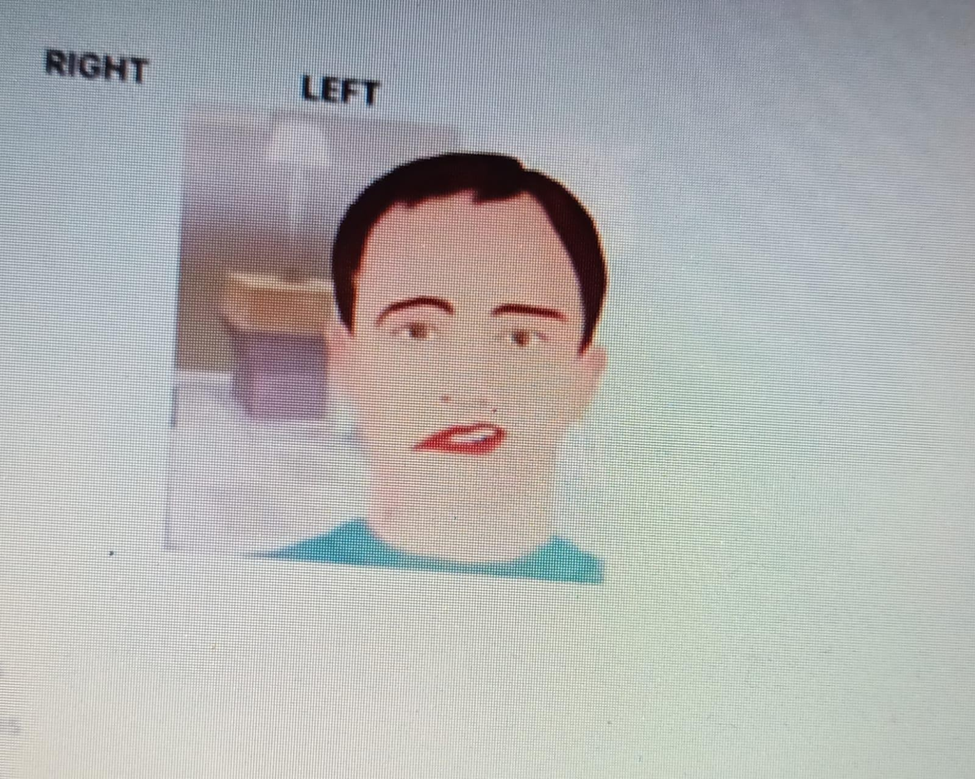The nurse exploring cranial nerves function and observes the following reaction: The nurse documents that the client has a:

Left VII cranial nerve paralysis
Right Vll cranial nerve paralysis
Right V cranial nerve paralysis
Left V cranial nerve paralysis
The Correct Answer is B
Choice A rationale: This is not accurate since the manifestations of facial nerve paralysis are observed on the contralateral side which in this case is the left side of the face hence the right facial nerve is paralyzed.
Choice B rationale: Facial nerve paralysis cause symptoms such as drooping of the eyelid, cheek or mouth as depicted in the above picture. The right facial nerve is paralyzed since the nerve innervates the contralateral side hence the effects are demonstrated on the
left side of the face.
Choice C rationale: trigeminal nerve paralysis causes symptoms such as weakness in muscles of mastication, altered sensation over the face and tongue, and hearing impairment and not the symptoms depicted above.
Choice D rationale: trigeminal nerve paralysis causes symptoms such as weakness in muscles of mastication, altered sensation over the face and tongue, and hearing impairment and not the symptoms depicted above.
Nursing Test Bank
Naxlex Comprehensive Predictor Exams
Related Questions
Correct Answer is C
Explanation
Choice A rationale: HPV is a sexually transmitted infection but must not necessarily be reported to the public health department.
Choice B rationale: Genital herpes should not be reported to the public health department.
Choice C rationale: Gonorrhea is a reportable disease, meaning that health care providers must notify the public health department of any confirmed cases. This helps to prevent the spread of the infection and provide treatment and counseling to the affected individuals and their partners.
Choice D rationale: Infectious mononucleosis should not be reported to the public health department.
Correct Answer is D
Explanation
Choice A rationale: Metronidazole is not typically used to treat genital warts caused by HPV.
Choice B rationale: HPV can be transmitted through various forms of sexual contact, including oral sex.
Choice C rationale: Condoms reduce but do not eliminate the risk of HPV transmission. Choice D rationale: Genital warts caused by HPV increase the risk of cervical cancer,
necessitating regular Pap smears for monitoring and early detection.
Whether you are a student looking to ace your exams or a practicing nurse seeking to enhance your expertise , our nursing education contents will empower you with the confidence and competence to make a difference in the lives of patients and become a respected leader in the healthcare field.
Visit Naxlex, invest in your future and unlock endless possibilities with our unparalleled nursing education contents today
Report Wrong Answer on the Current Question
Do you disagree with the answer? If yes, what is your expected answer? Explain.
Kindly be descriptive with the issue you are facing.
